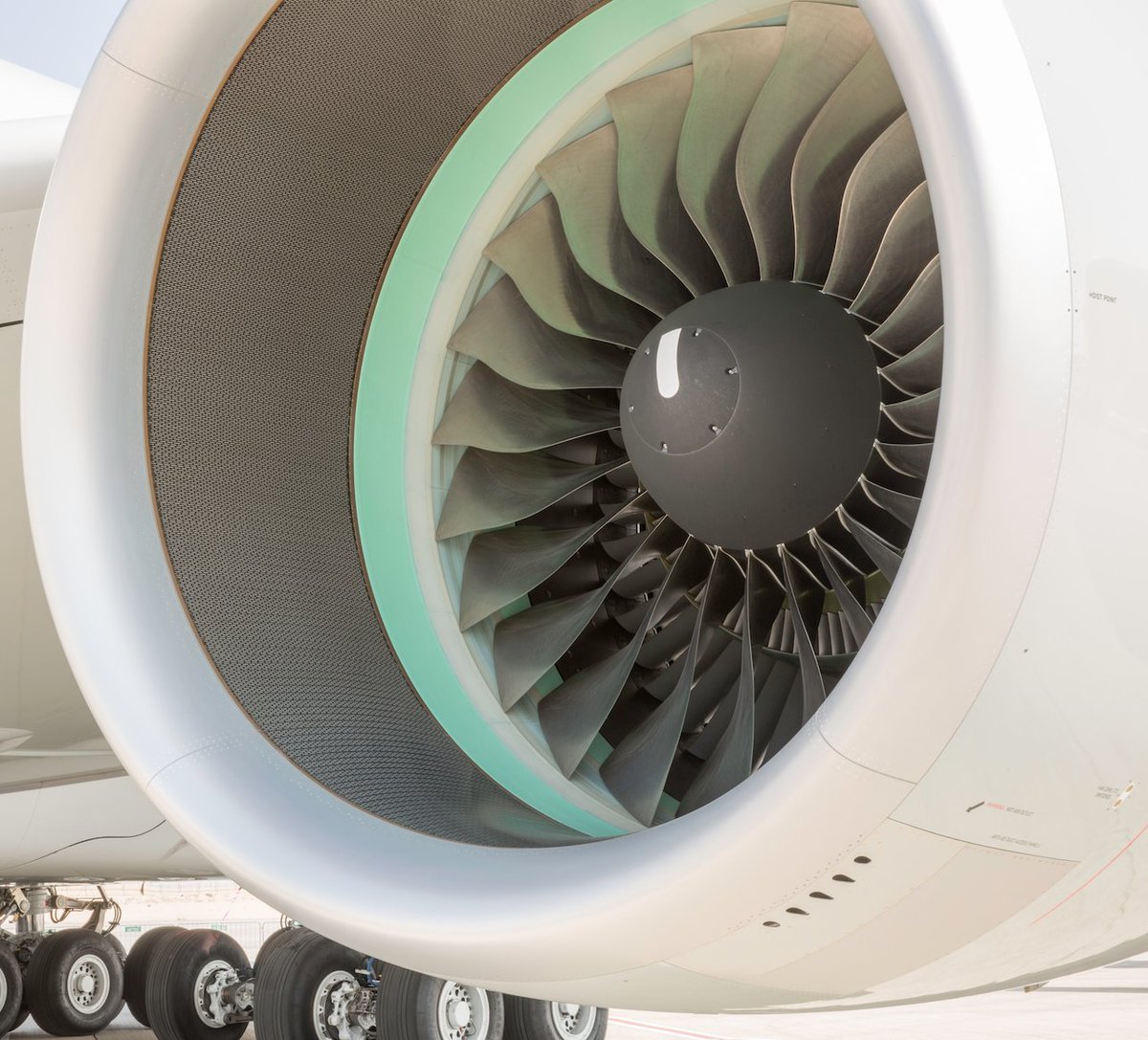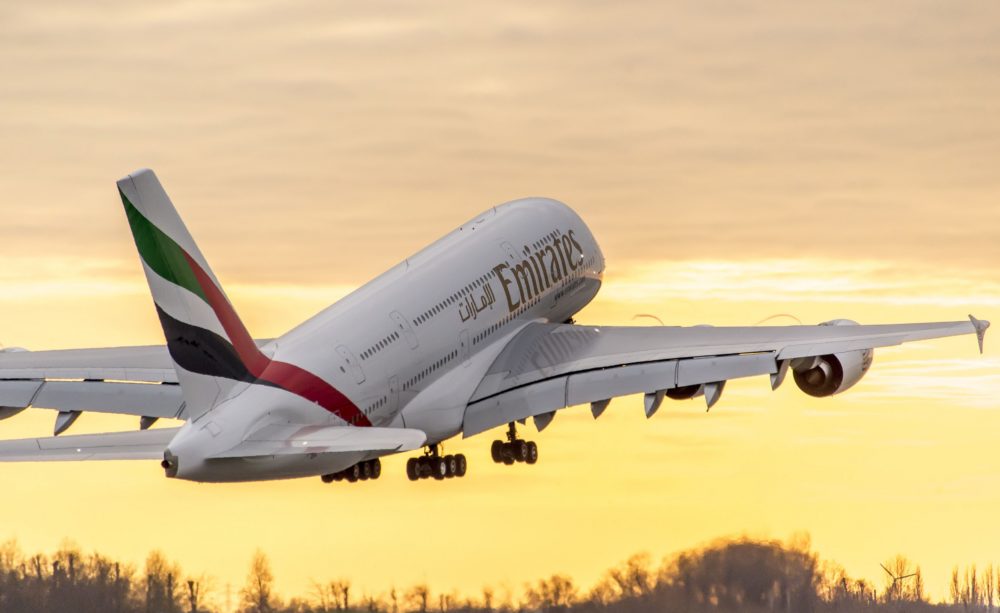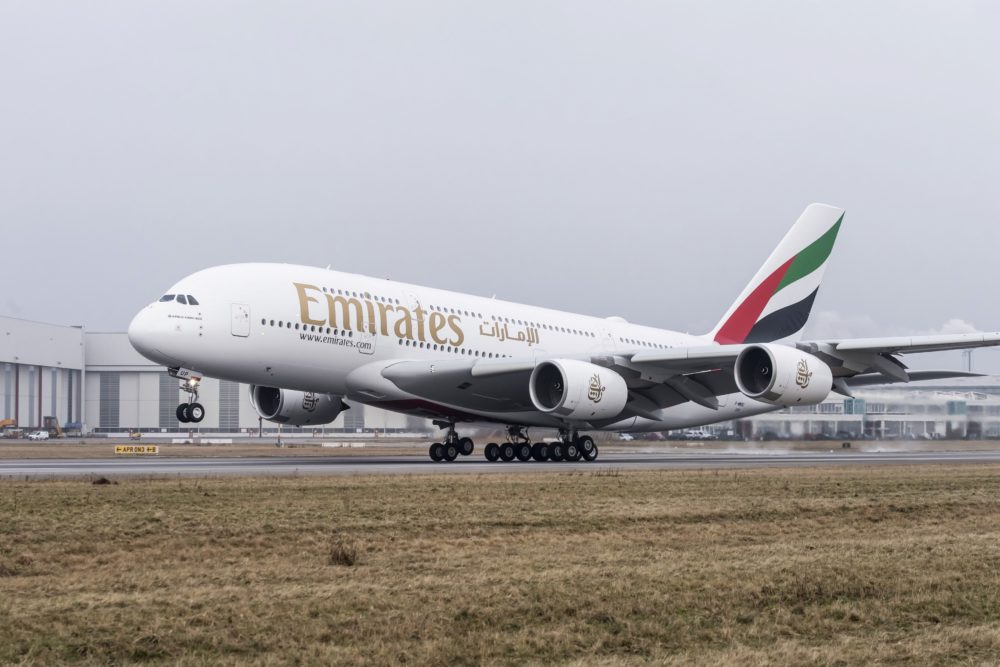Emirates Airbus A380 order hits complications
When Emirates placed a top-up order for the slow-selling Airbus A380 in January, Airbus was relieved because it ensured production of the type could be sustained for another 1o years. However, the deal seems to have stalled and it’s because of engine issues.
The order for 20 Airbus A380s and 16 options, worth US$16 billion, is in a complicated stage as Emirates discusses their concerns with Rolls-Royce about the Trent 900s failure to meet fuel burn and durability figures outlined by Rolls-Royce. Millions of dollars in compensation have been handed over to Emirates to compensate for the poor durability within the Trent 900, specifically the high-pressure turbine blades. Emirates now is negotiating with Rolls-Royce about future price and fuel burn figures for their order.
Emirates has missed the deadline to choose between the Engine Alliance (EA) GP7200 and Rolls-Royce Trent 900 engines, potentially putting first delivery in danger of being pushed back to beyond 2020, with some saying it’s threatening the order outright.

Initially, Emirates operated the EA GP7200s for their A380s but made the switch to Rolls-Royce engines in 2015 when an agreement was made to power 50 aircraft in a deal worth US$9.2 billion. Emirates hoped that by ordering the Trent 900, they could push Rolls-Royce and Airbus into an A380neo program. Airbus and Rolls-Royce saw no reason to comply and left it there. EA, which is a joint venture between General Electric and Pratt and Whitney, hasn’t been so enthusiastic since, and has made this evident with their lack of aggressive marketing for this recent A380 order. However, it is worth noting that EA has left their doors open for a potential deal to supply new engines though. They haven’t completely stepped down, they’re just selling in a quiet manner.
With greater engine programs in action such as the General Electric GEnx, GE9x, LEAP and Pratt and Whitney Geared Turbofan, the EA GP7200 is simply not worth aggressively fighting for anymore. The joint venture is still intact but has since turned its focus to engines that deliver a profit and can be built on a sustained production line. It would take a significant order of A380s from multiple airlines to get EA into a production ramp-up.
The end of the A380?
With the Emirates deal now stalled, concern is filling the air regarding the future of the A380. With no real orders other than Emirates and a small order for ANA, Airbus only has a small backlog to fill. If Emirates’ order does work out, Airbus will have 178 A380 aircraft in its backlog, with more than half destined for Emirates.

If Airbus decides the A380 isn’t worth it anymore, the resale value of Emirates’ fleet of A380s will be shocking, taking to the point where the airline might question are they even worth selling when they’re done with them?
Production rate of the A380 has been cut from 15 a year in 2017 to six a year in order to keep the production rolling. Airbus simply does not want to let the aircraft go before the Boeing 747 does. If the A380 shuts down before the 747, Boeing will have their crown jewel become the prime aviation masterpiece. Airbus built the A380 to answer the demand of increasing traffic and compete with the 747 but both companies have come to some sort of realization that the very large aircraft category has fallen in favor of large twin-engine aircraft such as the A350, 787 and 777x. The prime thing Boeing has going for the current 747-8 program is the fact that it is a very capable freighter and has recently picked up additional orders.
Currently Airbus is scrambling to gain some sales of the A380 by focusing on rapidly growing areas such as Asia, where large aircraft are necessary. Talks with British Airways for more aircraft were in place but have since disappeared.
Just like most things, time will tell. It is, however, a crucial order for Airbus and is one that would cause quite the shakeup if lost.
What do you think?




